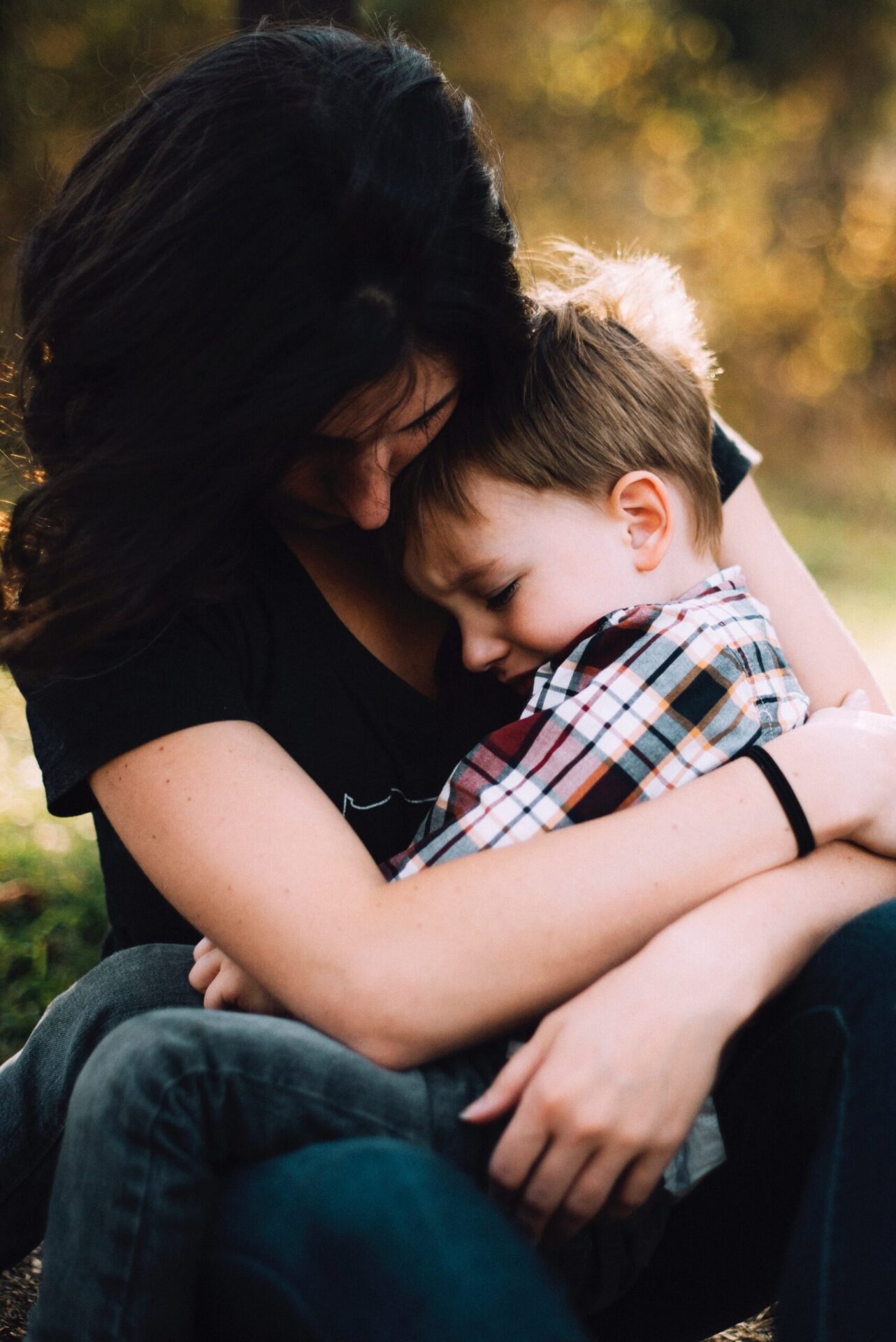As parents, we just want to get it right with our kids! When going through a major life transition, such as divorce, kids can develop a sense of confusion and ultimately hopelessness about their future when parents uncouple. Even the most in-tune parent can miss or wonder about the signs of depression in their children.
Children are often sad about the transition of divorce watching their parents uncouple, which is normal when one home becomes two, a parent becomes less involved in their life, etc. Divorce can disrupt a child’s normal developmental sequence. How do we spot these signs of depression and how do we know when to seek help?
Children may be sad, angry, and scared about what to expect and all of these feelings are normal. And some children will not show any emotion around a divorce. Depending on your child’s developmental stage (toddler, teen, adult child), the symptoms can vary. As an attuned parent, pay attention to any changes in your child’s behavior. Some of this is developmentally normal, so how are we to know?
Here are some signs that your child may possibly be depressed (not an inclusive or exhaustive list):
- Reverting back to a previous developmental stage (in younger children this may be going back to sucking their thumb, talking in baby talk, wetting the bed; in older children such as pre-teens and older this may look like helplessness around things they previously had competency and confidence in).
- Increased irritation or anger and/or outbursts
- Self-deprecating remarks
- Withdrawal from social situations, family, friends, regular activities
- Changes in appetite or sleep, lower energy
- Inability to concentrate
- Increased anxiety (anxiety and depression are on the same scale and can go hand in hand)
- Self-harm
One or more of these symptoms may not indicate clinical depression however seeking therapy can put another set of eyes and ears to the situation to determine how best to provide the entire family support.
Oftentimes, situational depression can be alleviated when a parent gets in tune with what the child is feeling. Compassion and not punishment for some of their behavior can go a long way. Not all children know how to talk about emotions and some (teens for instance) don’t want to. Honor this by checking in and making it safe for your child not to share.
For instance, “Johnny, I imagine this transition of mom and dad splitting up makes you sad or maybe even a bit worried at times…is that right?” Depending on his age, he may or may not agree. If a child opens up and shares, this is NOT the time to fix his feelings.
Make space for them, “I get that you are sad. There is so much sadness for all of us as we restructure our family. I am here and available if you want to talk” and then let them be and check in a few days later. The safer you make it to not talk, the more likely they will open up (this is for children of verbal age and up).
But what if you see your child declining even further? This is where a good family therapist can help. Sometimes parents come in for parent consults on how best to navigate their child’s emotions and sometimes the child gets relief in therapy (play therapy for children under 12). Therapists can help guide parents in how to open up conversation around their child’s sadness and anger and help alleviate the concerns. In more severe cases (suicidal thoughts and attempts, self-harm behaviors), a child psychiatrist can evaluate the child for depression and treat appropriately in tandem with family therapy.

Kimberly Sandstrom, Licensed Marriage & Family Therapist, is Certified Divorce Coach in training and works with parents and individuals navigating through divorce and uncoupling—emotional healing, co-parenting, re-entering the dating world. Kimberly is the founder of “The Classy Girl’s Guide to Divorce” and hosts workshops on navigating the process of divorce.





